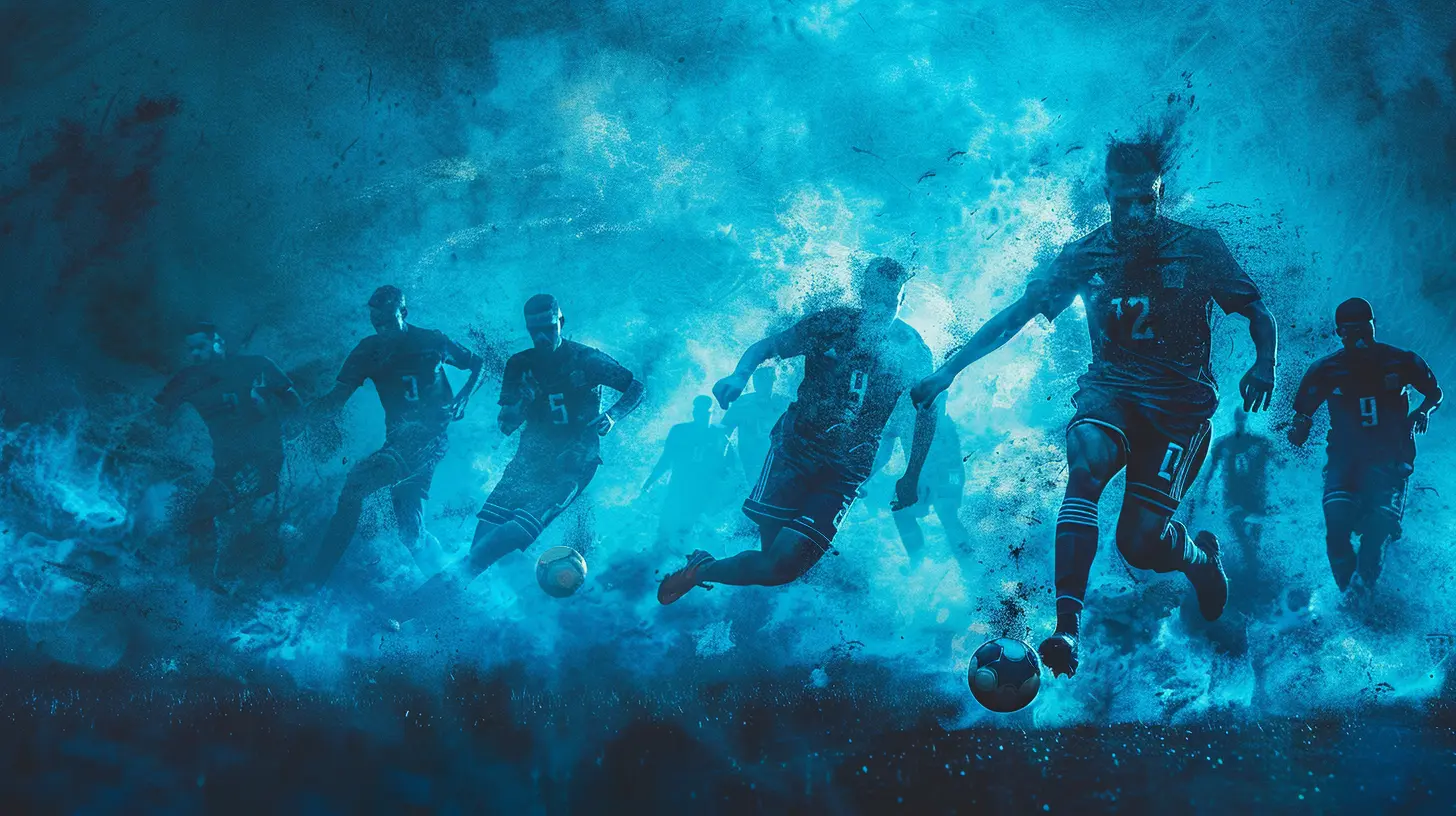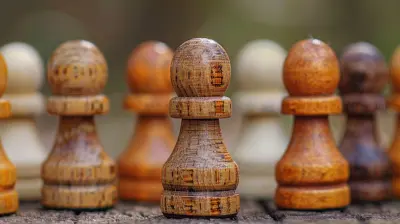Balancing Star Players and Team Chemistry
29 November 2024
When it comes to managing a sports team, there’s always a fine line between relying on your star players and maintaining strong team chemistry. You can have the most talented individual athletes in the league, but if they don’t gel with others, your chances of winning as a unit might take a nosedive.
In this article, we’re going to dive deep into the importance of balancing star players with the overall chemistry of the team. It’s not just about skill—it’s about how well everyone works together. Think of it as a recipe: you might have high-quality ingredients (star players), but if you throw them into the mix without considering how they blend with everything else, you might end up with a disaster instead of a masterpiece.
So, let’s get into it. How do you, as a team manager or coach, strike that perfect balance between the individual brilliance of your star athletes and the unity of the squad?
The Role of Star Players
Let’s face it—star players are game-changers. They’re the ones you rely on when the game’s on the line, the ones who can single-handedly turn things around. Whether it's a goal-scoring machine in soccer, a clutch shooter in basketball, or a power hitter in baseball, these players have the skills that can lead a team to victory.But here’s the thing: while star players can shine, they cannot win games alone. Sure, Michael Jordan was incredible, but even he had Scottie Pippen, Dennis Rodman, and others backing him up. The same goes for any other sport. You need a team around your star to carry out the game plan, provide support, and make sacrifices when necessary.
The Double-Edged Sword of Star Power
Star power can be a double-edged sword. On one hand, these athletes can inspire the rest of the team, lifting everyone’s performance. On the other hand, they can also unintentionally create friction. When one player is getting all the attention, others might start to feel undervalued or overshadowed. This is where the challenge begins.It’s easy for a star player’s confidence to be misinterpreted as arrogance. It’s even easier for other players to feel like they’re playing second fiddle, which can lead to resentment. If left unchecked, this can tear a team apart from the inside.
Why Team Chemistry Is Critical
You’ve probably heard the phrase, "A chain is only as strong as its weakest link." That couldn’t be more accurate when it comes to team sports. Team chemistry is all about how well players communicate, trust each other, and work toward a common goal. You can have the best player in the world, but if the team dynamics are off, it’s a recipe for disaster.What Exactly Is Team Chemistry?
Team chemistry isn’t just about liking one another (although that helps). It’s about understanding each other’s strengths and weaknesses, playing to those strengths, and covering for weaknesses. It’s knowing when to pass the ball, when to trust a teammate to make a play, and when to step up yourself. It’s about collective responsibility.When a team has good chemistry, they’re like a well-oiled machine. Everyone knows their role, and they’re willing to make sacrifices for the greater good. As a manager, fostering this kind of environment should be a top priority.
Building Trust Among Players
One of the key components of team chemistry is trust. Trust that your teammate will make the right decision. Trust that they’ll have your back when you make a mistake. Trust that, even though one player might be taking the spotlight, everyone is working toward the same goal: winning.Trust isn’t built overnight, but it’s essential. Without it, misunderstandings and finger-pointing will creep in, and before you know it, your team’s morale is in the gutter.
The Challenge of Balancing the Two
Now, here’s where it gets tricky—how do you balance the undeniable talent of a star player with the need for cohesive team play? It’s not easy. It involves managing egos, making difficult decisions, and sometimes even benching your star player to send a message.Managing Egos
There’s no denying that star players often come with larger-than-life personalities. They’ve been told they’re the best, and for good reason. But in a team environment, ego can quickly become a problem if it’s not kept in check.As a coach or manager, it’s your job to keep the egos in the locker room from clashing. This doesn’t mean you need to diminish your star player’s confidence—far from it. Instead, you need to foster an environment where everyone feels valued, regardless of their role on the team.
The conversation might look something like this: “You’re our go-to player, but this team doesn’t function without everyone playing their part.” It’s about making sure your star knows they’re important, but so is every other player on the roster.
Recognizing the Role of Role Players
When we talk about balancing star power with team chemistry, we can’t overlook the importance of role players. These are the unsung heroes who might not get the headlines but play an essential part in the team’s success. They’re the ones making the “dirty” plays—setting screens, making tackles, or providing assists.The key to maintaining harmony is making sure these role players feel just as essential as the stars. After all, without them, the star player wouldn’t have the space or opportunities to shine.
Sacrifice and Selflessness
Sometimes a star player will need to make sacrifices for the good of the team. Maybe they need to pass more, play a different position, or take on a leadership role that involves more talking and less scoring. It’s about finding that balance.On the flip side, role players also need to recognize that the star player might need to take more shots, play more minutes, or carry the team when things get tough. This give-and-take is what makes a team successful in the long run.
Strategies to Balance Star Power and Team Chemistry
Alright, now that we know the challenges, let’s talk solutions. Here are some strategies you can use to maintain balance between star players and team chemistry.1. Clear Communication
This one cannot be stressed enough. Open lines of communication between the coaching staff, star players, and the rest of the team are essential. Everyone needs to be on the same page when it comes to roles, expectations, and goals.As a coach, it’s your responsibility to keep those lines open. Regular team meetings, one-on-one talks, and even informal check-ins can go a long way in preventing any misunderstandings.
2. Set Defined Roles
Everyone on the team needs to know their role. Whether you’re the star player or the last person off the bench, you have a purpose. Make sure those roles are clearly communicated and understood. When everyone knows what’s expected of them, it minimizes confusion and resentment.3. Foster a Team-First Mentality
It’s important to create a culture where the team comes first, no matter what. This doesn’t mean stifling the talent of your star player—it means making sure that talent is used in a way that benefits the entire squad.Celebrate team achievements, not just individual ones. Make it clear that when the team wins, everyone wins.
4. Encourage Leadership from Star Players
Your star player doesn’t need to be the loudest guy in the locker room, but they should lead by example. Encourage them to show their teammates they’re just as invested in the team's success as they are in their personal accolades.Whether it’s staying late after practice, offering advice to teammates, or even showing humility, a star player who leads will have a positive impact on team chemistry.
5. Rotate Responsibilities
One way to balance the dynamic is by rotating leadership responsibilities. Give different players opportunities to take charge, whether that’s in practice drills, warm-ups, or in-game situations. This builds a sense of shared responsibility and emphasizes that everyone plays a part in the team’s success.Conclusion
Balancing star players with team chemistry is no easy task, but it’s essential for any team aiming for long-term success. Star players are important, no doubt, but without a united team behind them, their brilliance will only take you so far.As a coach or manager, your job is to foster an environment where everyone knows their role, feels valued, and trusts each other. It’s about managing egos, building trust, and ensuring that the focus is always on collective success, rather than individual accolades. When you strike that balance, you don’t just have a team—you have a championship-caliber squad.
all images in this post were generated using AI tools
Category:
Team ManagementAuthor:

Onyx Frye
Discussion
rate this article
17 comments
Ulysses Acevedo
Great insights on the delicate balance between star power and team chemistry! It's essential for success. Fostering a cohesive environment will not only enhance performance but also strengthen team bonds. Keep up the excellent work!
February 1, 2025 at 7:49 PM

Onyx Frye
Thank you! I appreciate your support and insight on this crucial balance. It's all about fostering unity for success!
Catherine Lee
Ah, the age-old dilemma: how to keep a superstar happy without turning the rest of the team into wallflowers at the prom. It's like trying to unite a cat-loving introvert and an extroverted dog enthusiast at a pet convention—chaotic, but oh-so-entertaining when done right!
January 26, 2025 at 12:28 PM

Onyx Frye
Absolutely! Striking that balance is crucial; it takes skill and creativity to ensure everyone shines together without overshadowing one another.
Nym McCall
Star players are like glitter in a craft project—shiny and eye-catching, but too much can overwhelm the masterpiece! Finding the right balance is the secret sauce to turn a team into a dazzling work of art!
January 22, 2025 at 8:54 PM

Onyx Frye
Great analogy! Striking that balance between star power and team chemistry is crucial for creating a cohesive and successful team.
Melody McGlynn
Striking a balance between star players and team chemistry is crucial for success in sports. While star talent can elevate performance, fostering strong relationships and teamwork enhances overall synergy. Coaches must navigate this dynamic thoughtfully, ensuring that individual brilliance complements collective effort for optimal results on and off the field.
January 15, 2025 at 4:05 AM

Onyx Frye
Absolutely! Balancing star talent with strong team chemistry is essential. Both elements must harmonize for true success on and off the field.
Rosalyn Russell
This article brilliantly highlights the delicate interplay between star players and team chemistry. It's a constant challenge for coaches to harness individual talent while fostering collaboration. Striking that balance is crucial for achieving long-term success on the field.
January 11, 2025 at 4:55 AM

Onyx Frye
Thank you for your insightful comment! Balancing individual talent with team chemistry is indeed essential for sustained success. I appreciate your perspective!
Yasmeen McGinn
Balancing star players and team chemistry is like trying to mix oil and water—one’s flashy, the other’s steady! But if they can figure it out, they might just turn that salad dressing into a five-star meal. Go teamwork!
January 6, 2025 at 8:12 PM

Onyx Frye
Absolutely! Finding the right blend of talent and teamwork is essential for success. When they harmonize, the results can be extraordinary!
Honor Gilbert
Trying to balance star players and team chemistry is like making a smoothie with a whole watermelon and a handful of spinach—sure, it’s colorful, but will anyone actually want to take a sip? Let’s blend better, folks!
January 1, 2025 at 11:20 AM

Onyx Frye
Great analogy! Finding the right balance between star talent and team cohesion is crucial for success. Let's strive for a blend that everyone can enjoy!
Vienna Kirkpatrick
In the dance of glory and grit, Star players shine, yet unity must fit. Harmony's song, a team's heartbeat strong, Together they rise, where all belong.
December 28, 2024 at 12:54 PM

Onyx Frye
Thank you for capturing the essence of teamwork! Unity truly amplifies individual talent.
Colin McElroy
Striking the right balance between star players and team chemistry is crucial for success. When egos align with teamwork, the entire roster thrives, leading to greater achievements.
December 24, 2024 at 10:02 PM

Onyx Frye
Absolutely! Finding that balance is key; when star talent complements strong teamwork, it creates a winning environment for everyone.
Maverick Tucker
Star players shine brightly, but true championship success lies in harmonizing their brilliance with team chemistry. It’s the unbreakable bonds, shared sacrifices, and collective spirit that elevate a squad from mere talent to greatness. Embrace the synergy, and watch as the magic unfolds on the field!
December 18, 2024 at 12:28 PM

Onyx Frye
Absolutely! A team's success hinges not just on individual talent but on the synergy created through strong bonds and collaboration. Embracing both is key to achieving greatness.
Bria Pace
Teamwork fuels success, shine together!
December 12, 2024 at 9:08 PM

Onyx Frye
Absolutely! Teamwork enhances collaboration, creating a strong foundation for collective success.
Lisette McAdoo
Striking a balance between star players and team chemistry is crucial for sustained success. While individual talent can shine, cohesive teamwork often determines championship aspirations. Organizations must prioritize synergy to unlock the full potential of both stars and the collective group.
December 7, 2024 at 4:28 AM

Onyx Frye
Absolutely! Striking that balance is essential. Talent can win games, but it's teamwork that builds champions. Prioritizing synergy unlocks the true potential of both star players and the team as a whole.
Vincent Baxter
Great insights! Balancing star players with team chemistry is crucial for success. It’s inspiring to see how effective communication and mutual respect can lead to a more cohesive team. Keep up the fantastic work in fostering unity and collaboration!
December 1, 2024 at 1:04 PM

Onyx Frye
Thank you! I'm glad you found the insights valuable. Team chemistry truly is essential for harnessing the full potential of star players.
Colin McTiernan
Like juggling flaming torches while riding a unicycle, balancing star players and team chemistry is an art! One wrong move and it’s a dazzling disaster—or a spectacular show! 🎪🔥
November 30, 2024 at 8:24 PM

Onyx Frye
Absolutely! Striking that balance is crucial for success—much like mastering a thrilling performance! 🎪✨
Brandon Vaughn
Great insights! Remember, teamwork makes the dream work—stars shine brightest together! 🌟🏆
November 30, 2024 at 5:38 AM

Onyx Frye
Thank you! Absolutely, the synergy of teamwork enhances individual brilliance! 🌟
Raina Schultz
Finding harmony between star players and team chemistry is vital; both are essential for lasting success together.
November 29, 2024 at 7:33 PM

Onyx Frye
Thank you! Balancing star talent with cohesive team dynamics is indeed crucial for sustained success. It's all about synergy!
Alana Robinson
Great insights! Finding harmony between talent and teamwork is crucial for success.
November 29, 2024 at 12:46 PM

Onyx Frye
Thank you! I completely agree—striking that balance truly defines success in any team.
MORE POSTS

The Anatomy of a Successful Draft Pick

The Best Tight End Prospects to Keep an Eye On

Breaking Down the Science of Synthetic Hormones in Sports

Surfing on a Budget: How to Save Money on Gear and Travel

Surf Etiquette: What Every Surfer Should Know

The Power of Home-Field Advantage in Professional Sports

The Best Drills for Improving Your Sprinting Speed

Understanding and Managing the Parent-Coach Relationship

The Best Ski Resorts for Beginners and Experts Alike

How to Use Athlete-Generated Content to Boost Engagement

How to Transition from Amateur to Elite Athlete